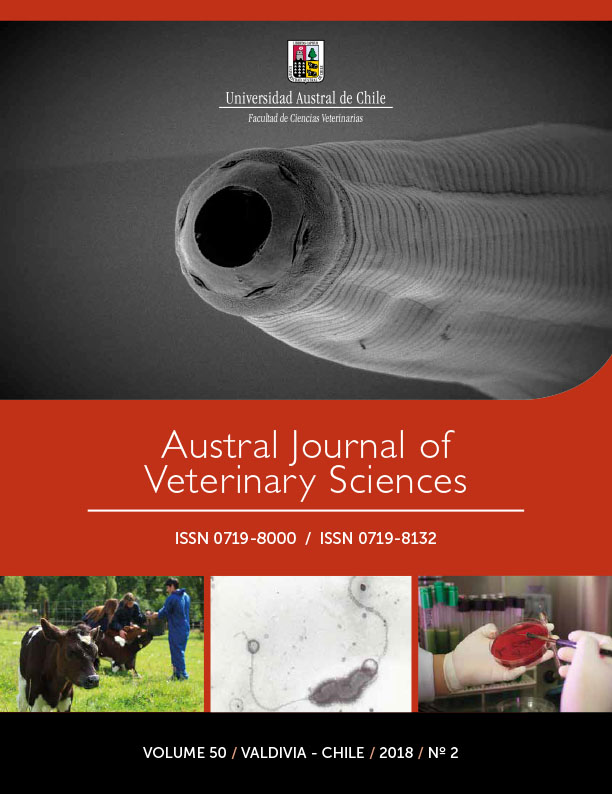Drug resistance in parasitic helminths of veterinary importance in Chile: status review and research needs
Contenido principal del artículo
Resumen
The increasing development of anthelmintic resistance (AR) in parasites of livestock is threatening animal health and production worldwide. In Chile, studies evaluating the field efficacy of anthelmintics and the detection of AR have been performed since the 2000s, but until now, no previous attempt has tried to systematise the available information. This article reviews general concepts about AR in helminths of veterinary importance, methods for diagnosis of AR and summarises the published reports of AR in Chile. Anthelmintic resistance in Chile has been reported in gastrointestinal nematodes of horses (benzimidazole resistance) and ruminants (sheep and cattle, macrocyclic lactone and benzimidazole resistance). However, these cases involved a limited number of selected farms and no further conclusions can be made of the status of parasite drug resistance at a regional or national level. No published cases of AR in Fasciola hepatica have been reported in Chilean livestock, but human infections with triclabendazole-resistant F. hepatica have been described in patients with previous consumption of watercress or untreated water from marshes grazed by livestock. Given the zoonotic potential and endemic nature of F. hepatica in Chile, it is urgent to determine the extent of liver fluke resistance. Current research gaps of the situation of AR in Chile and suggestions for the performance of laboratory and field studies are further discussed.

